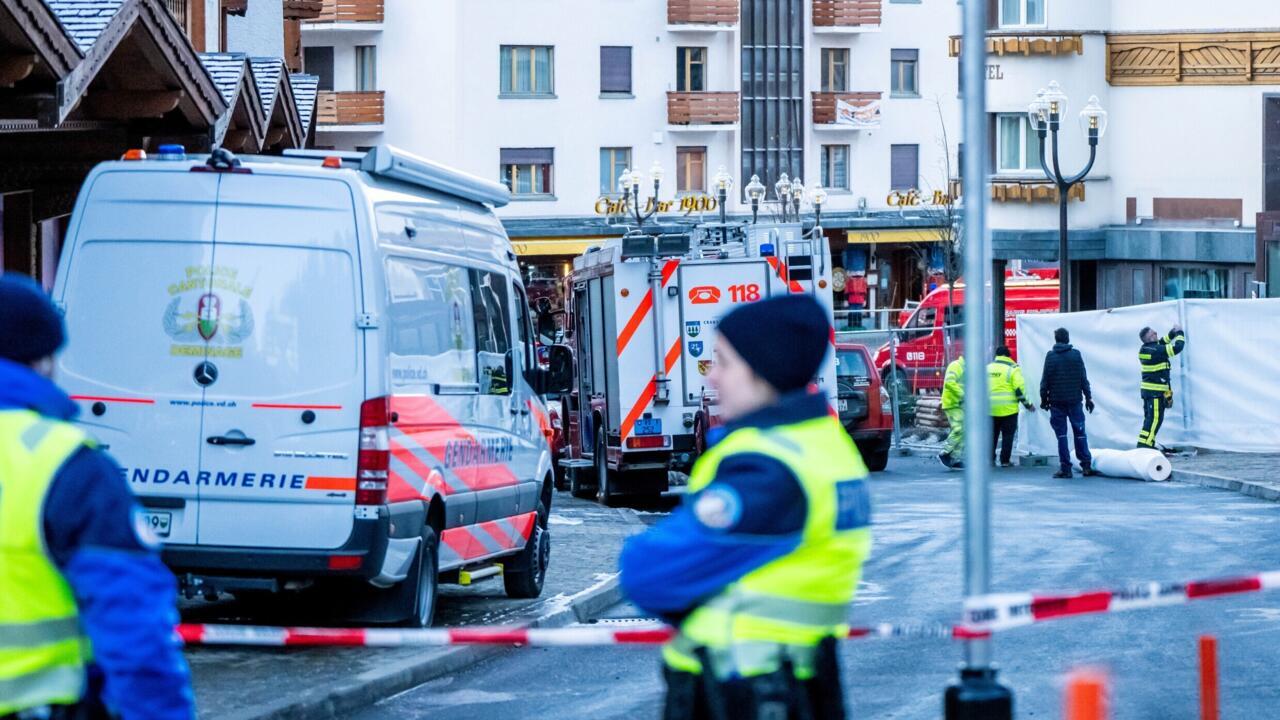News
As Kamala Harris Faces Political Turmoil, Will Hope Prevail Over Fear In The US Election?

As Kamala Harris Enters The US Election Danger Zone, We Are About To See If Hope Trumps Fear
BY ARTHUR SINODINOS
As an Australian onlooker, the pageantry of American politics – party conventions in particular – can seem like a spectacle compared with the austerity of Australian elections.
But after the DNC celebrations in Chicago wind down, the Democratic party is facing the hard reality of a serious fight ahead of November’s presidential election.
At this stage of the campaign, it’s better to be in Kamala Harris’ shoes than Donald Trump’s. But she has some work to do yet and is maybe a couple of points off a genuine lead.
She is now entering the danger zone. The home stretch traditionally kicks off on Labor Day on the first Monday in September, when everyone returns to work. Most voters are locked into their choice by now but must be motivated to stay engaged and cast their vote. Ballot papers will start going out soon in some states.
The few undecideds now start to focus on the campaign. By this stage, candidates should have honed their messages down to a few key points that they will repeat ad nauseam until election day. By the end of it, the candidates will have very little fuel left in the tank.
The major events to come are the debate(s), where a misstep could cost the election. If Trump behaves himself and sticks to the key issues (immigration and the economy) he is positioned to win the debates and possibly the election. The pressure on Harris is to show she can go toe to toe with Trump and is in command of not only broad themes but policy, without getting lost in the weeds.
Trump has struggled to get his line and length on Harris. He is still mourning the loss of Joe Biden. He went through a similar grieving process in 2020 when Covid-19 derailed his election campaign. Trump began 2020 confident that the strong economy and incumbency would result in a comfortable reelection, but Covid completely changed the election landscape. He struggled to adjust his message, veering between Churchillian statesmanship and partisan brawling. He took over Vice President Pence’s daily briefings, which were rating highly, and made the election a referendum on himself.
Biden, meanwhile, kept to his basement and pounded out messages that highlighted Trump’s negatives. He detached enough non-college-educated white voters to swing the election. That was the calculation behind backing Biden in 2020. In this election, Biden became a handbrake on voter enthusiasm, so the Democrats cancelled him. Trump underestimated the ruthlessness of the Democrats and Biden’s party loyalty; he is above all an institutionalist, the quintessential insider.
Read also : The Potential Return of Donald Trump and Its Global Impact
Trump presents himself as the outsider, seeking to appeal to those let down by the cosy Washington insiders looking after themselves and Wall Street but not main street. Insiders are cosmopolitans and globalists; he is America First.
Trump is simultaneously courting the big end of town and the libertarians in Big Tech with promises of lower taxes and less regulation. Tech bros such as Elon Musk and Peter Thiel also see themselves as outsiders, breaking through the business establishment and setting their own rules. Trump is OK with that if they fund him and provide support in the media.
A strong suit for Trump is the economy, which did well during his tenure, driven by tax cuts and a burgeoning deficit. Biden’s strong economy has been undermined by inflation stoked by supply side shortages and continued growth in government spending. Trump’s policy proposals for higher tariffs will add to costs as will the desire to artificially lower the dollar, impacting interest rates and undermining market confidence. The Republicans cannot agree on a plan to rein in the fiscal deficit, with defence spending set to go
Harris is turning the Republican mantra of freedom on its head – freedom over your own body if you are a woman, freedom from gun violence and the freedom to get ahead. She has reenergised young people and women generally. She is leaning into the changing face of America, positioning Trump as yesterday’s man
higher and Trump having promised tax cuts all round and ruled out cuts to Medicare and social security.
Trump’s other strong suit is immigration, which has surged in the last four years. His attacks on immigration are also a proxy for how quickly America is changing in demography, and racial and ethnic complexion. This is linked to fears about safety and security in sections of the population. This was exemplified by a recent Trump ad that contrasted a traditional American house with a flag out the front, next to a hellscape of a neighbourhood overrun by dark-skinned immigrants and intruders. This is not a time for subtlety.
But Harris has transformed the race. She is proof that, above all, politicians are purveyors of hope. That was Michelle Obama’s message to the Democrat faithful: “The contagious power of hope.”
Harris is turning the Republican mantra of freedom on its head – freedom over your own body if you are a woman, freedom from gun violence and the freedom to get ahead. She has reenergised young people and women generally. She is leaning into the changing face of America, positioning Trump as yesterday’s man.
She remains a policy chameleon, straddling the divide between moderate and progressive Democrats, and deftly distancing herself from some Biden-era policies including the self-described broken immigration system. She has junked inconvenient policy positions. She no longer supports single payer government-run healthcare, for example.
The Trump team is reprising previous policy positions to define her as a far-left candidate. This may stick if Harris is unable to define herself, although the Trump/Vance team has shifted positions over time, too.
Democrat strategists are wary of tying her down with too many details – that is for after the election. Her positions now are meant to paint a picture of her as the anti-Trump while neutralising his populist themes. She matched his promise not to tax tips (important to hospitality workers in Nevada). Her major economic speech last week was a populist feast, dealing with inflation by going after price gouging by corporations and offering a housing grant program to the middle class (proxy for the aspirational working class).
If Trump continues to bait her by targeting personality rather than policy, she may just get away with policy lite.
We are about to see if hope trumps fear.
Arthur Sinodinos is a former Australian ambassador to the US. He is the partner and chair of The Asia Group’s Australia practice and was a former minister for industry, innovation and science
News
Trump Warns Cuba to “Make a Deal” Or …
Trump Warns Cuba to “Make a Deal” Or …
United States President Donald Trump has issued a fresh warning to Cuba, urging the Caribbean nation to “make a deal” or face undisclosed consequences, as Washington intensifies pressure following the seizure of Venezuelan leader Nicolás Maduro.
Trump’s comments came amid escalating tensions in Latin America after a 3 January US raid in Caracas that led to the arrest of Maduro and his wife, Cilia Flores, on drug trafficking and other charges in the United States.
Venezuela, a long-standing ally of Cuba, is believed to supply the island with about 35,000 barrels of oil daily, a crucial lifeline for Cuba’s energy-dependent economy.
However, the Trump administration has moved to disrupt that arrangement, confiscating oil tankers allegedly carrying sanctioned Venezuelan crude.
On Friday, US authorities seized a fifth tanker in what officials say is part of efforts to enforce sanctions on Venezuela.
The moves have reportedly worsened Cuba’s fuel shortages and electricity crisis.
In a post on his Truth Social platform on Sunday, Trump declared an end to the oil-for-support relationship between Havana and Caracas.
“Cuba lived, for many years, on large amounts of OIL and MONEY from Venezuela. In return, Cuba provided ‘Security Services’ for the last two Venezuelan dictators, BUT NOT ANYMORE!” Trump wrote.
“THERE WILL BE NO MORE OIL OR MONEY GOING TO CUBA – ZERO! I strongly suggest they make a deal, BEFORE IT IS TOO LATE.”
The US president did not specify what deal he was proposing or the consequences Cuba might face if it failed to comply.
Cuba’s Foreign Minister, Bruno Rodríguez, swiftly rejected Trump’s remarks, insisting that Cuba has the right to import fuel without external interference.
“Our country retains the absolute right to import fuel from any exporter willing to sell, without interference or subordination to the unilateral coercive measures of the United States,” Rodríguez said.
He added that Cuba does not submit to “blackmail or military coercion against other states.”
President Miguel Díaz-Canel also struck a defiant tone, saying no foreign power could dictate Cuba’s actions.
“No one dictates what we do,” Díaz-Canel said, accusing the US of lacking moral authority. “Those who turn everything into a business, even human lives, have no moral authority to point fingers at Cuba for anything, absolutely anything.”
News
40 Dead, 119 Injured in Swiss Ski Resort Bar Fire

40 Dead, 119 Injured in Swiss Ski Resort Bar Fire
No fewer than 40 persons have been confirmed dead following a devastating fire outbreak at a bar in the Swiss ski resort town of Crans-Montana on New Year’s Eve, Swiss police have said.
Authorities on Sunday confirmed that the bodies of all 40 victims have now been identified.
The victims were aged between 14 and 39 years, with 15 of them under the age of 18.
The youngest victims were a 14-year-old Swiss girl and a 14-year-old French boy.
The deceased were drawn from several nationalities, including Swiss, Italian, Romanian, Turkish, Portuguese, French and Belgian citizens, as well as nationals of the United Kingdom, France and Israel, underscoring the international nature of the tragedy at the popular Alpine resort.
In addition to those killed, 119 people sustained varying degrees of injuries, most of them severe burns.
Police disclosed that six of the injured are in such critical condition that they have not yet been identified.
The fire broke out at Le Constellation bar, a venue known to be popular with young people in Crans-Montana, where the legal drinking age is 16.
A preliminary investigation indicated that sparklers attached to bottles and held too close to the ceiling may have ignited the blaze.
Swiss prosecutors have since opened a criminal investigation into the French couple who managed the bar.
The couple, identified by the media as Jacques and Jessica Moretti, are suspected of manslaughter by negligence, bodily harm by negligence and arson by negligence, according to the Valais regional prosecutor’s office.
The lead prosecutor in Valais canton, Ms Beatrice Pilloud, said investigators are examining whether the acoustic foam installed on the bar’s ceiling contributed to the rapid spread of the fire and whether it complied with existing safety regulations.
Police said no further personal details of the identified victims would be released out of respect for their families.
However, some relatives have begun to speak publicly as the scale of the tragedy sinks in.
On Saturday night, the mother of one of the victims, Ms Brodard-Sitre, announced via Facebook that her 16-year-old son, Arthur Brodard, was among those who died.
In an emotional video message, she said the family could now begin mourning, “knowing that he is in peace and in the light,” adding that her son had “left to party in paradise.”
Earlier, while Arthur was still listed as missing, his mother told local newspaper Le Temps that she had been “living a nightmare,” revealing that some of his friends had suffered burns to nearly half of their bodies.
“There are no words – they went through hell,” she said.
Italian media also identified 16-year-old junior golfer, Emanuele Galeppini, as one of the victims.
The Italian Golf Federation paid tribute to the teenager, describing him as a “young athlete who carried passion and authentic values.”
His father reportedly confirmed that the boy was at Le Constellation on the night of the incident, although Italian authorities had initially declined to confirm his death.
News
US Denies War With Venezuela as Tensions Rise After Maduro’s Capture

US Denies War With Venezuela as Tensions Rise After Maduro’s Capture
The United States has insisted it is not at war with Venezuela, a day after US forces carried out strikes that led to the capture of Venezuelan President Nicolás Maduro and his wife, Cilia Flores, in an operation that has sharply escalated tensions between the two countries.
US Secretary of State, Marco Rubio, said on Sunday that Washington’s actions should not be interpreted as a declaration of war, stressing that the operation was “limited and targeted.”
His comments came amid international concern over the implications of the US military action and growing uncertainty over Venezuela’s political future.
According to a spokesperson, Maduro and Flores are expected to appear in a US court on Monday, following their arrest.
The charges they will face were not immediately disclosed, but US officials have previously accused Maduro’s government of corruption, drug trafficking and human rights abuses.
Venezuela’s Defence Minister, Vladimir Padrino, confirmed that the US operation resulted in significant casualties, claiming that a large part of Maduro’s security team was killed, alongside what he described as “innocent civilians.”
Padrino condemned the strikes as a violation of Venezuela’s sovereignty and accused Washington of using excessive force.
In Caracas, the Venezuelan government formally denounced what it called “military aggression” by the United States.
In a statement, the Venezuelan armed forces said they remain loyal to interim President Delcy Rodríguez, signaling that Maduro’s allies still retain control of key state institutions despite his capture.
Trump, speaking in an interview with The Atlantic, warned that Rodríguez would “pay a big price” if she “does not do what is right,” a remark that has further inflamed tensions and raised fears of additional US pressure or sanctions.



















